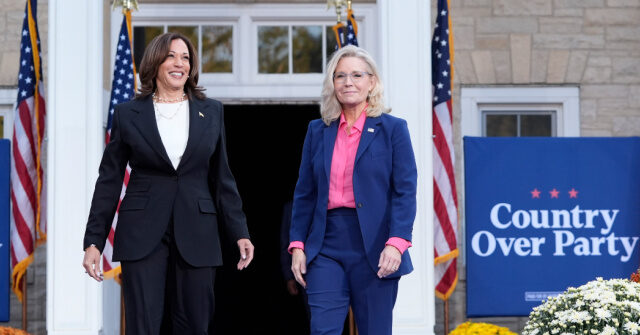In a recent online tirade, former President Donald Trump took aim at Liz Cheney, calling her “dumb as a rock” and a “War Hawk” following her collaboration with Vice President Kamala Harris on a campaign tour. Cheney’s presence alongside Harris is notable given that Harris is reportedly facing challenges in garnering support from Arab and Muslim voters. The duo held “moderated conversations” in key battleground states—Pennsylvania, Wisconsin, and Michigan—amid Trump’s charged response. He portrayed Harris as belligerent, accusing her of desiring military engagement with Muslim countries and warning that her continuance in office would lead to further conflict in the Middle East. In contrast, Trump assured his supporters that under his leadership, peace would prevail.
During the events, Cheney criticized Trump, accusing him of undermining democracy, integral to Harris’s campaign strategy. However, a recent Washington Post/Schar School poll revealed that many voters believed Trump would be better equipped to safeguard democratic principles than Harris. Cheney expressed deep concern about the future of democracy in the United States, highlighting the impact of the January 6 Capitol riots on the political landscape and stressing the importance of supporting Harris for the preservation of democratic values.
In an unusual moment, Vice President Harris distanced herself from President Joe Biden’s administration, unveiling her intention to establish a distinct political identity. She articulated that her leadership would diverge from Biden’s policies and suggested a need to heal the societal divide she attributes to Trump. Harris emphasized the necessity of moving past a narrative that pits Americans against one another, indicating her desire to construct a more unified political discourse. Her comments resonate with her role as a potential presidential candidate seemingly seeking to carve out her own legacy.
Cheney, a neoconservative and the daughter of former Vice President Dick Cheney, has been a fixture in established Republican circles. Known for her strong positions and actions during her tenure in Congress, she notably collaborated with Democrats on the January 6 Committee. This cooperation, which included leaking information on other Republican leaders, contributed to her fall from favor within the GOP, ultimately costing her a leadership position to Rep. Elise Stefanik. Furthermore, Cheney’s financial ascent from an estimated $7 million in 2017 to over $44 million by 2020 raises questions about the motivations behind her political maneuvers and affiliations.
As Cheney seeks political relevance, her actions and those of Harris may be viewed as attempts to galvanize bipartisan support. Cheney’s endorsement of help from Democrats during her re-election campaign has been perceived as a strategic shift, aimed at appealing to a broader electorate disillusioned by the extremes of either side. Within this context, Harris’s partnership with Cheney reflects a tactical decision to challenge Trump’s narrative and strengthen her campaign’s appeal amidst declining approval ratings.
Both Cheney and Harris are navigating a complex political landscape characterized by polarization and shifting alliances. Their collaboration raises profound questions about the future direction of American politics, particularly in the wake of Trump’s continuing influence over the Republican Party. Cheney’s past actions and growing discontent with her party and Harris’s distancing from Biden suggest that both may play pivotal roles in shaping the upcoming presidential election. Ultimately, their respective strategies may underscore the critical need for political figures to adapt to a volatile electorate responsive to calls for unity and reform, amidst the backdrop of Trump’s enduring legacy.

